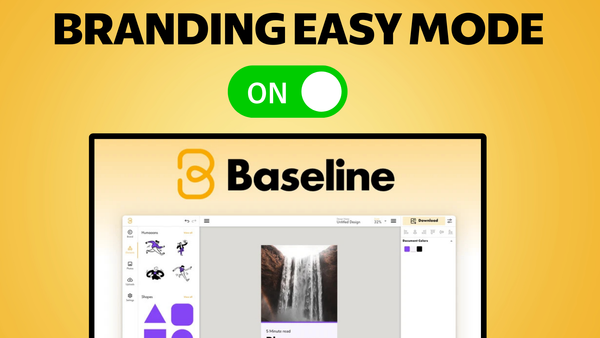The Best Place to Host Your Online Course: A Comprehensive Guide
Discover the perfect platform for your online course. Compare marketplaces, all-in-one solutions, and open-source options to make an informed choice.

Introduction
In today’s digital age, online courses have become an increasingly popular way to share knowledge and skills. However, choosing the right platform to host your online course can be a crucial decision that impacts your success as an educator and entrepreneur. This guide explores the three main types of online course platforms available: marketplaces, all-in-one hosted platforms, and open-source solutions. We’ll delve into the pros and cons of each option, helping you make an informed decision about where to host your online course. Whether you’re a seasoned instructor or just starting out, this comprehensive overview will provide valuable insights into the world of online course hosting.
Marketplace Platforms
Marketplace platforms like Udemy and Skillshare are popular choices for hosting online courses. These platforms offer a unique environment where courses are readily available to a large audience actively searching for educational content.
Advantages of Marketplace Platforms
- Built-in Traffic: One of the most significant advantages of marketplace platforms is their pre-existing user base. These sites attract millions of users who are specifically looking for courses on various topics.
- Search Functionality: Marketplaces typically have robust search features that allow potential students to find courses based on their interests and needs.
- Reduced Marketing Effort: With a marketplace, you may not need to invest as heavily in marketing your course, as the platform itself drives traffic to your content.
- Low Barrier to Entry: These platforms often have a straightforward process for course creators to upload and publish their content, making it easier for newcomers to get started.
Disadvantages of Marketplace Platforms
- Competition: The ease of publishing courses on these platforms means you’ll be competing with numerous other instructors, potentially in the same niche.
- Limited Control: Marketplaces often have strict guidelines and formatting requirements, which may limit your creative freedom in course design.
- Revenue Sharing: Most marketplace platforms take a significant percentage of your course sales, which can impact your overall earnings.
- Pricing Constraints: Some platforms may restrict your ability to set your own prices or offer promotions, which can limit your pricing strategy.
Popular Marketplace Platforms
- Udemy: Known for its vast array of courses across multiple disciplines, Udemy is one of the largest online learning marketplaces.
- Skillshare: Focused more on creative skills, Skillshare offers a subscription-based model for learners to access multiple courses.
All-in-One Hosted Platforms
All-in-one hosted platforms like Kajabi and Thinkific offer a comprehensive solution for course creators, providing not just course hosting but a suite of tools to manage your entire online education business.
Features of All-in-One Platforms
- Course Hosting: These platforms provide robust course creation and hosting capabilities, often with customizable templates and multimedia support.
- Website Builder: Most all-in-one solutions include tools to create a professional-looking website to showcase your courses and brand.
- Marketing Tools: Built-in email marketing, sales funnels, and landing page builders are common features that help you promote your courses.
- Community Features: Many platforms offer integrated community spaces or forums to foster student engagement and interaction.
- Payment Processing: These solutions typically handle payment processing, making it easy to monetize your courses.
Advantages of All-in-One Platforms
- Convenience: Having all the necessary tools in one place can significantly streamline your workflow and reduce the need for multiple subscriptions.
- Technical Support: Most all-in-one platforms offer customer support, reducing the technical burden on course creators.
- Scalability: These platforms are often designed to grow with your business, accommodating more courses and students as you expand.
- Professional Appearance: The integrated tools and templates can help you create a polished, cohesive brand presence online.
Disadvantages of All-in-One Platforms
- Cost: The comprehensive nature of these platforms often comes with a higher price tag, which can be challenging for new course creators.
- Learning Curve: With so many features, it can take time to fully understand and utilize all the tools available.
- Limited Customization: While these platforms offer many options, they may still be more restrictive than fully custom solutions.
- Dependency: Relying on a single platform for all aspects of your business can be risky if the company changes its policies or pricing.
Popular All-in-One Platforms
- Kajabi: Offers a full suite of tools for course creation, marketing, and business management.
- Thinkific: Known for its user-friendly interface and robust course creation tools.
Open Source Solutions
Open source solutions, particularly those built on WordPress like LearnDash, offer a flexible and customizable option for hosting online courses.
Understanding Open Source for Course Hosting
- WordPress-Based: Many open source course hosting solutions are built as plugins or themes for WordPress, leveraging its flexibility and widespread use.
- LearnDash: A popular learning management system (LMS) plugin for WordPress that allows for comprehensive course creation and management.
- Customization: Open source solutions offer unparalleled flexibility in terms of design, functionality, and integration with other tools.
Advantages of Open Source Solutions
- Full Control: With open source, you have complete control over every aspect of your course platform, from design to functionality.
- Cost-Effective: While there may be initial setup costs, open source solutions can be more economical in the long run, especially for larger-scale operations.
- Scalability: Open source platforms can be easily scaled to accommodate growth in courses and student numbers.
- Integration: These solutions often integrate well with a wide range of other tools and services, allowing for a highly tailored setup.
Disadvantages of Open Source Solutions
- Technical Knowledge Required: Setting up and maintaining an open source solution typically requires more technical expertise than using a hosted platform.
- Responsibility for Updates and Security: You’ll need to manage updates, security, and backups yourself (or hire someone to do it for you).
- Time Investment: Customizing and maintaining an open source solution can be time-consuming, potentially taking focus away from course creation and teaching.
- Lack of Built-in Marketing Tools: Unlike all-in-one platforms, open source solutions may require additional plugins or integrations for marketing functionality.
Key Features of LearnDash
- Course Builder: LearnDash offers a robust course builder that allows for the creation of complex, multi-tiered courses.
- Content Dripping: Schedule content release to keep students engaged over time.
- Quizzes and Assessments: Create various types of quizzes and assessments to test student knowledge.
- Certificates: Automatically award certificates upon course completion.
- User Management: Robust tools for managing student accounts, progress, and permissions.
Key Takeaways
Choosing the right platform to host your online course is a critical decision that can significantly impact your success as an online educator. Here are the key points to consider:
- Marketplace Platforms like Udemy and Skillshare offer built-in traffic and ease of use but come with high competition and less control over your course presentation and pricing. They’re ideal for those new to course creation or looking to tap into an existing audience.
- All-in-One Hosted Platforms such as Kajabi and Thinkific provide a comprehensive suite of tools for course creation, marketing, and business management. While they offer convenience and professional-looking results, they can be costly and may have limitations in terms of customization.
- Open Source Solutions, particularly WordPress-based options like LearnDash, offer maximum flexibility and control. They’re cost-effective in the long run but require more technical knowledge and ongoing maintenance.
When deciding on a platform, consider factors such as:
- Your technical skills and willingness to learn new systems
- Your budget, both for initial setup and ongoing costs
- The level of control you want over course design and pricing
- Your marketing capabilities and needs
- The size of your existing audience
- Your long-term goals for your online education business
Remember that each type of platform has its strengths and weaknesses, and the best choice depends on your specific needs, goals, and resources. Many successful course creators even use a combination of platforms to maximize their reach and diversify their income streams.
As you embark on your journey as an online course creator, take the time to thoroughly research and even test different platforms. Many offer free trials or have free tiers that allow you to explore their features before committing. Don’t be afraid to start small and scale up as you learn what works best for you and your students.
Ultimately, the success of your online course will depend not just on the platform you choose, but on the quality of your content, your teaching style, and your ability to engage and support your students. Focus on creating valuable, engaging content, and use the platform that best allows you to deliver that content to your target audience.
Whether you choose a marketplace, an all-in-one solution, or an open source platform, remember that the world of online education is constantly evolving. Stay open to new technologies and approaches, and be prepared to adapt your strategy as the landscape changes. With the right platform and a commitment to delivering high-quality education, you can create a successful and impactful online course that reaches learners around the world.




